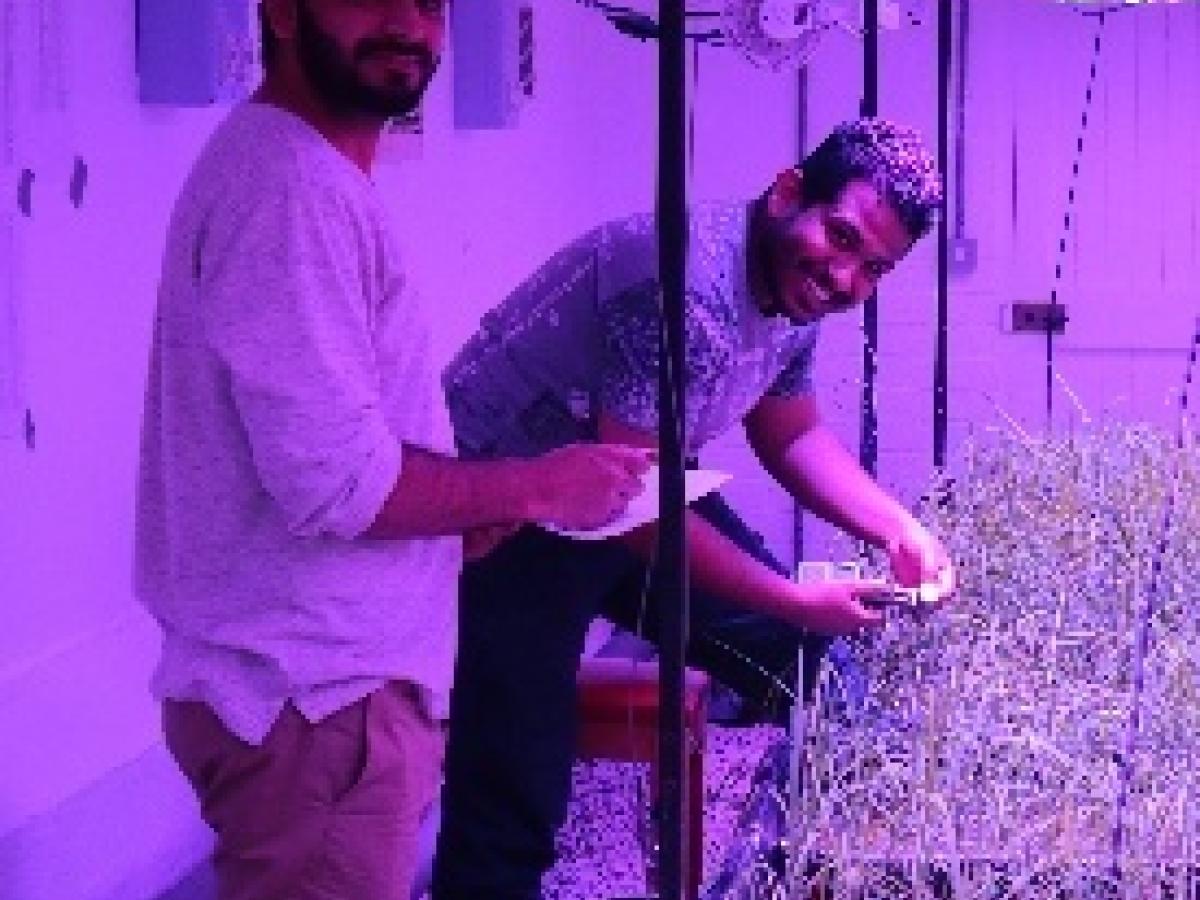
Work Package 2.1b Genetic Experiments
Despite the challenges of the pandemic, WP 2.1b have worked very hard to absorb all covid-19 related delays and are on schedule for all activities. Partners in India, Bangladesh, and the UK have grown the BAAP seeds at two different nitrogen levels. Samples from these experiments have been measured, data compiled, and the first Genome Wide Association (GWA) mapping conducted. WP 2.1b partners in India have also completed detailed physiology screenings of 10 rice cultivars and have compiled all the yield and yield component data from the experiment. Chemical analyses have also been completed and they are now conducting statistical analysis.
Partners in Pakistan have been busy bulking wheat lines and are expecting to get 450 lines with sufficient seeds for the genetic experiments. In India, WP 2.1b partners have sown 15 wheat lines (November 2020) under 4 N levels and are monitoring that experiment now. Our partner IARI has also welcomed a new PhD student who will be phenotyping >300 wheat genotypes under two N levels over the coming few years.
Proteomic studies
Two PhD students from SANH Partner AMU in India were hosted by the University of Aberdeen in the UK and conducted proteomic studies to investigate how different levels of nitrogen impact protein expression in rice. They grew 229 individual accessions of BAAP rice at 100% and 0% recommended nitrogen levels. After extracting protein and RNA samples, the proteomics identified 300 proteins with significant difference in abudance at the different nitrogen levels.There was a big difference between rice genotypes, some were very nitrogen responsive while others were less so.The analysis of the GWAS data and proteomic profiling is in process.
Training and Engagement
There have been many developments in WP 2.1b's capacity building and stakeholder engagement. The University of Aberdeen is currently planning an online training workshop on GWA mapping in the BAAP in June 2021. SANH's work has also highlighted in a talk on "Nitropnics in Agriculture" to the Aberdeen Climate Action's Climate Cafe on 7th July 2020, which attracted about 60 viewers. Four SANH PhD students also participated in a special training session by National Institute of Genomics and Advanced Biotechnology (NIGAB) and the National Agriculture Research Council (NARC) entitled “training and tools of biotechnology and bioinformatics”. SANH partners, in India, have also been engaging with other projects such as those looking at the molecular understanding of nitrate uptake in aerobic rice and the physiological and molecular basis of ammonia volatilization losses from rice canopy.
